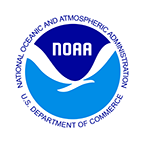NOAA Supports Recreational Fishing and Boating in the U.S.
By Chris Oliver & Nicole Laboeuf
Jun 03, 2019
Recreational fishing and boating are two of America’s favorite pastimes. The National Oceanic and Atmospheric Administration (NOAA) works every day to support and promote safe, enjoyable, and sustainable outdoor recreation in our Nation’s coastal and ocean waters.
Photo caption: Boating and fishing in national marine sanctuaries provide opportunities for people of all ages to get to know the ocean and Great Lakes, give families time to connect, and help young people better understand underwater life.
Photo credit: Sanctuary Classic
Recreational fishing and boating are two of America’s favorite pastimes. The National Oceanic and Atmospheric Administration (NOAA) works every day to support and promote safe, enjoyable, and sustainable outdoor recreation in our Nation’s coastal and ocean waters. Sustainable recreational fishing and boating is a win-win; it both enriches the lives of millions of Americans who are able to get out on the water and provides incredible economic benefit to our coastal communities.
At NOAA, we understand that our coastal, Great Lakes and offshore waters are not simply a weekend playground, but the foundation of a large and vibrant blue economy. In 2016, outdoor recreation accounted for 2.2% of the United States Gross Domestic Product (GDP) and experienced growth that outpaced the entire US economy (1.7% vs 1.6% in 2016, Bureau of Economic Analysis Outdoor Recreation Satellite Account). That same year, marine recreational fishermen spent over $30 billion on durable goods and fishing trips and contributed about $38.7 billion to GDP. (NOAA Fisheries, Fisheries Economics of the United States 2016). By NOAA Fisheries’ most recent estimates, 472,000 jobs are supported by saltwater recreational fishing (NOAA Fisheries, Fisheries Economics of the United States 2016). These jobs underpin economies in every coastal state and territory and strengthen families and communities – not only for those employed by the industry, but for the millions of their grateful customers.
We are forging an ever-stronger partnership with the recreational fishing and boating community to help promote sustainable outdoor recreation. On February 15, 2019, NOAA Fisheries and the Office of National Marine Sanctuaries signed a Memorandum of Agreement with four private sector organizations, the National Marine Manufacturers Association, the American Sportfishing Association, as well as the Recreational Boating and Fishing Foundation, and the Association of Fish and Wildlife Agencies. The Agreement establishes a formal framework for communication and collaboration between the government and private sector to promote sustainable recreational fishing and boating activities.
Clean and healthy waters, and the wildlife that they support, are fundamental to the appeal of boating and fishing—they are what makes our time on the water restorative and memorable. NOAA’s Office of National Marine Sanctuaries is responsible for ensuring the health of some of America’s most iconic waters. The benefits of the National Marine Sanctuaries System go beyond ecosystem services and magnificent places. You might be surprised to learn that 98 percent of waters in national marine sanctuaries are open to recreational fishing. Across all national marine sanctuaries, about $8 billion annually is generated in local coastal and ocean dependent economies from diverse activities like research, recreational and commercial fishing, and other recreation and tourism activities.
In addition to national marine sanctuaries, NOAA supports the stewardship of National Estuarine Research Reserve System, a network of state-managed protected areas where rivers meet the sea. Many of these places are significant sites for recreational boating and fishing. Fostering sustainable and responsible use of natural resources is a long term goal that we all share—we need to ensure that current and future generations of boaters and anglers are able to enjoy them.
NOAA’s work to support boating and fishing doesn’t stop there. Many more of our offices provide services to boaters and anglers that make recreation safer and more enjoyable.
- Recreational boaters and anglers use NOAA nautical charts, tide tables, and real-time data on marine and weather conditions to navigate safely and efficiently. NOAA provides navigation information both through its own programs and through support for regional and local observation networks.
- Recreational boaters and anglers can generate custom charts from our website that are tailored to their float plans.
- Our Coastal Zone Management Program helps states enhance access to beaches and boat ramps by providing financial and technical assistance for infrastructure and public information products.
- In the Florida Keys National Marine Sanctuary, NOAA is exploring the use of smart buoy technology which can transmit information, from fishing and boating regulations to pictures of recreational opportunities beneath the waterline, directly to your cell phone. The buoys could also provide weather, shipwrecks, tides, fishing conditions, etc.
- Recreational boaters and the general public can access the location of right whales in the Stellwagen Bank National Marine Sanctuary via Whale Alert app on their smartphones thanks to an array to 10 automated acoustic detection buoys.
- NOAA’s Coral Reef Information System can be used by recreational boaters, divers and others to learn where and how to explore coral reefs.
- NOAA also provides the public the ability to monitor the location of harmful algal blooms and to use this information to augment their trip plans.
At NOAA, we remain dedicated to fostering, supporting, and enhancing a broadly accessible and diverse array of access to sustainable recreational fishing and boating activities for the benefit and enjoyment of the nation. We encourage everyone to get out and explore the plethora of activities our Nation’s coastal waters offer and enjoy this time with your family and friends. This week, keep an eye on our various offices webpages and social media accounts to learn more about what NOAA is doing to support sustainable recreational fishing and boating.
See you out on the water!









